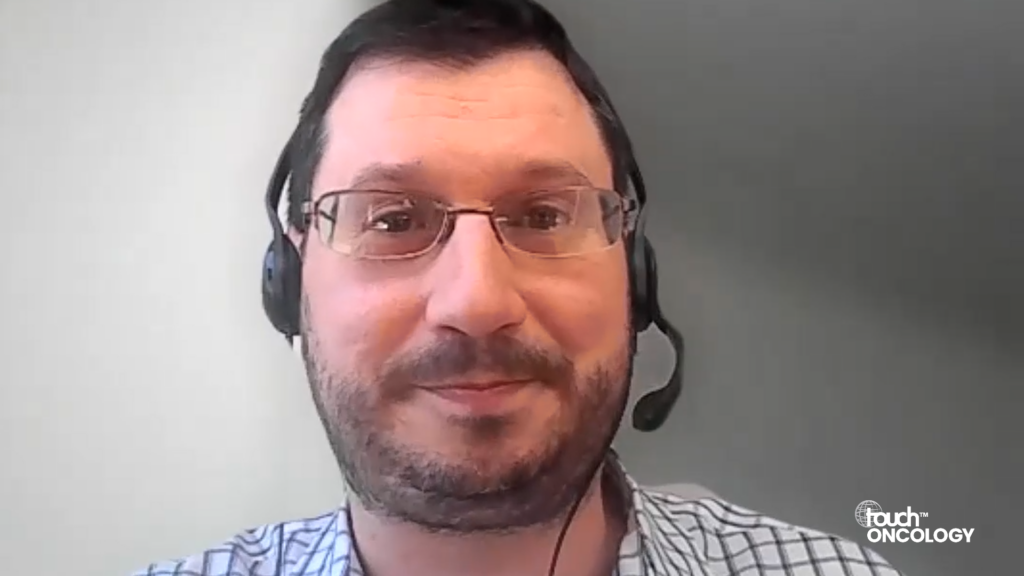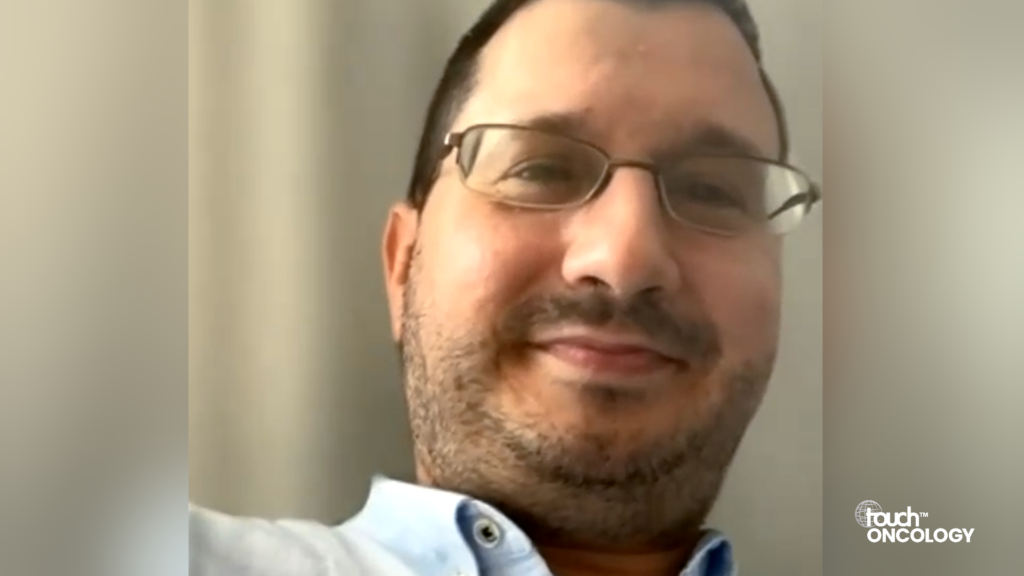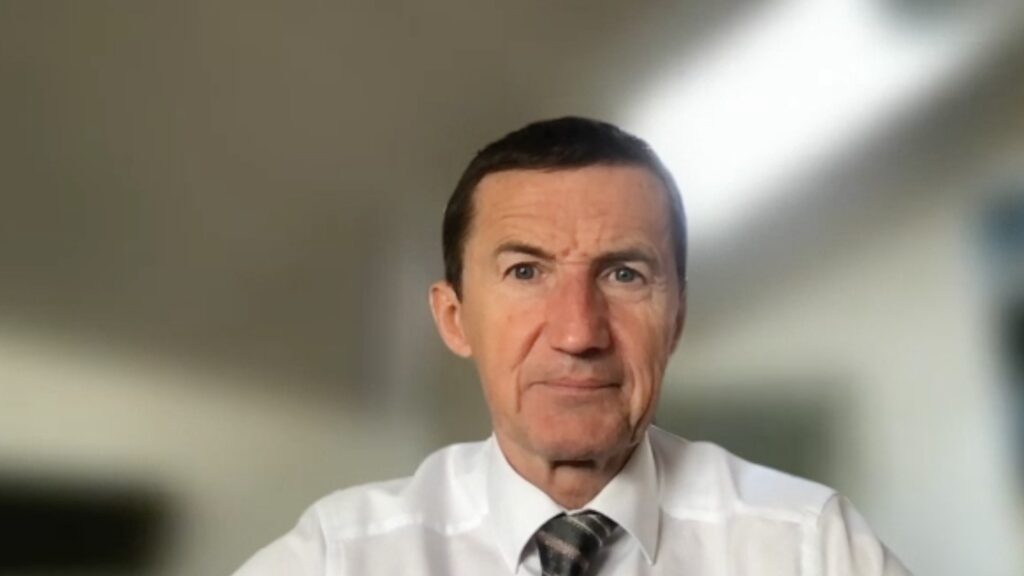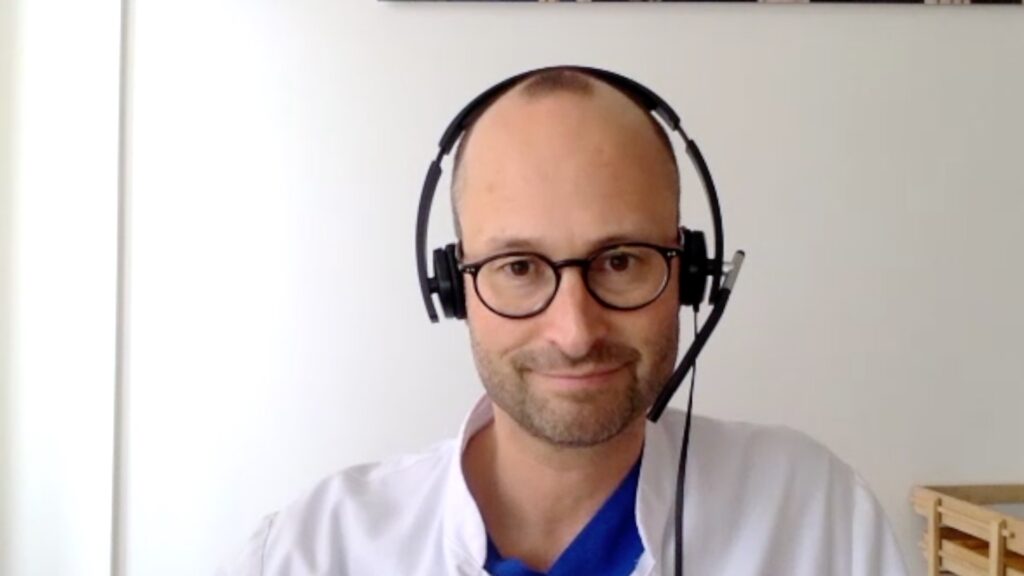Dr Ajjai Alva discusses the rationale of pembrolizumab in combination with chemotherapy for the treatment of advanced urothelial cancer and findings from the KEYNOTE-361, and future directions for pembrolizumab research. The late-breaking abstract ‘Pembrolizumab (P) combined with chemotherapy (C) vs C alone as first-line (1L) therapy for advanced urothelial carcinoma (UC): KEYNOTE-361’ (LBA23) was presented at the Virtual 2020 ESMO Congress, 19–21 September 2020.
Questions
- What is the rationale for using pembrolizumab in combination with chemotherapy in the first-line treatment of advanced urothelial cancer? (0:14)
- Could you give us an overview of the aims and design of the KEYNOTE-361 trial? (1:58)
- What were the efficacy and safety findings of this study? (3:40)
- Why do you think the primary endpoint was not met? (5:54)
- How will these findings impact on the role of pembrolizumab in the treatment of advanced urothelial cancer and what future studies involving pembrolizumab in urothelial cancer are planned or are in progress? (8:40)
Speaker Disclosure: Ajjai Alva has been an advisory board member/consultant for Merck Sharp & Dohme Corp, Bristol-Myers Squibb, AstraZeneca, Genentech, Roche, Pfizer, Progenics and Prometheus; has received travel/accommodations/expenses from Merck Sharp Dohmen Corp, Bristol-Myers Squibb and has received research funding through institution from Merck Sharp & Dohme, AstraZeneca, Bristol-Myers Squibb, Astellas, Seattle Genetics, Genentech, Pfizer, Progenics, Prometheus, Eli Lilly, ASCO, Celgene and Harpoon Therapeutics.
Support: Interview and filming supported by Touch Medical Media Ltd. The KEYNOTE-361 trial was sponsored by Merck Sharp & Dohme Corp., a subsidiary of Merck & Co., Inc., Kenilworth, NJ, USA
Filmed in coverage of the Virtual 2020 ESMO Congress.
PFS = progression-free survival.










